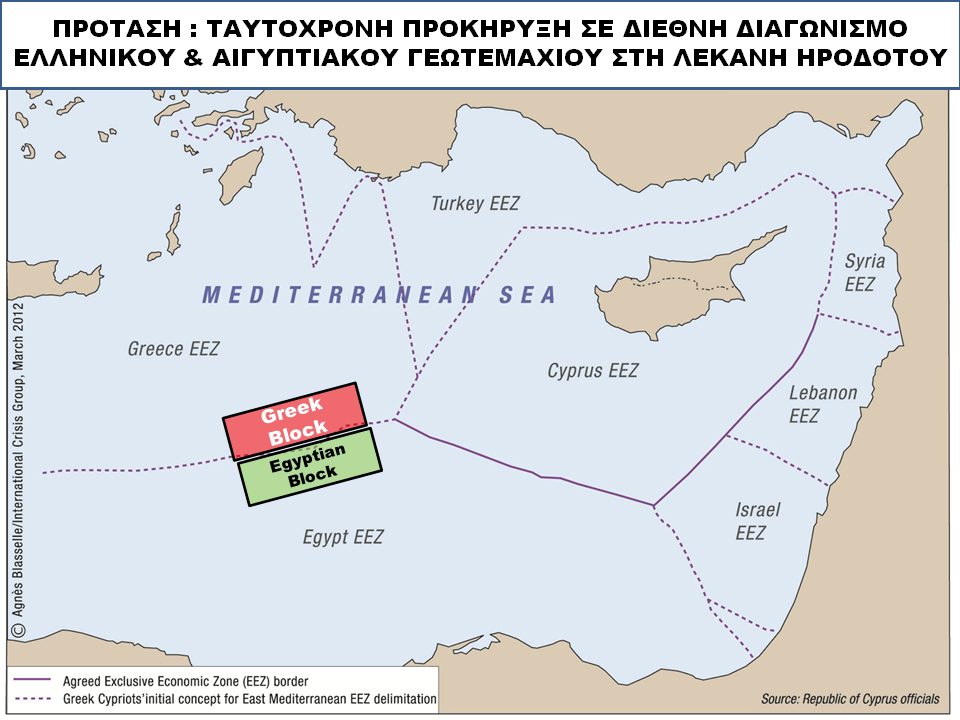21141 - Greek-Egyptian Tender of offshore blocks in Herodotus Basin
E. Conophagos, N. Lygeros, A. Foscolos
Translated from the Greek by Vicky Baklessi
Three years ago Egypt held a global tender for two very significant offshore blocks, the block 9 of 3.765 km2 in length, which is tangent to the blocks 10 and 11 of the Cypriot EEZ and block 12 of 7.150 km2, which on the southeast of Crete is tangent to the Greek EEZ and belongs to the Herodotus Basin. We should note of course that it completely adheres the mid line of Kastellorizo complex-Egypt. In the offshore block 9 of Egypt, which was awarded to the Italian company ENI, the supergiant natural gas field which changed completely the development prospects of the greater region of the Eastern Mediterranean. On the contrary there were no interested companies for block 12, because it should have been larger in size, given its great sea depth (2.500 to 3.000 meters). Due to the reason above and regardless of when our EEZ will be validated in the region, and we all know that it has been dramatically delayed, we propose, as it is professionally applied in many parts of the world, after agreement with Egypt, both countries to jointly hold an global tender simultaneously for two bordering blocks of the Herodotus Basin. An offshore block from the Greek Herodotus Basin of 10.000 km2 in size and one southwards, bordering the Egyptian Herodotus Basin of the same size. This simultaneous, attractive towards the global market tender of the above mentioned offshore blocks as a unified concession area towards licensed contractors, namely petroleum companies, would allow Greece to internationally promote, in a professional manner, its rights in the greater region of the Herodotus Basin, while at the same time it would facilitate Egypt to have final offers from the petroleum companies. In order for this effort to receive greater possibilities of attendance by companies, the tender needs to provide, in the case that the company or consortium discovers a hydrocarbon field only from one side (e.g in the Greek block), that they will be able to amortize from production their research expenses incurred on the other side (e.g in the Egyptian block). We consider this action necessary – for professional and geopolitical reasons-regardless of whether there will finally be any offers for the blocks mentioned above.


